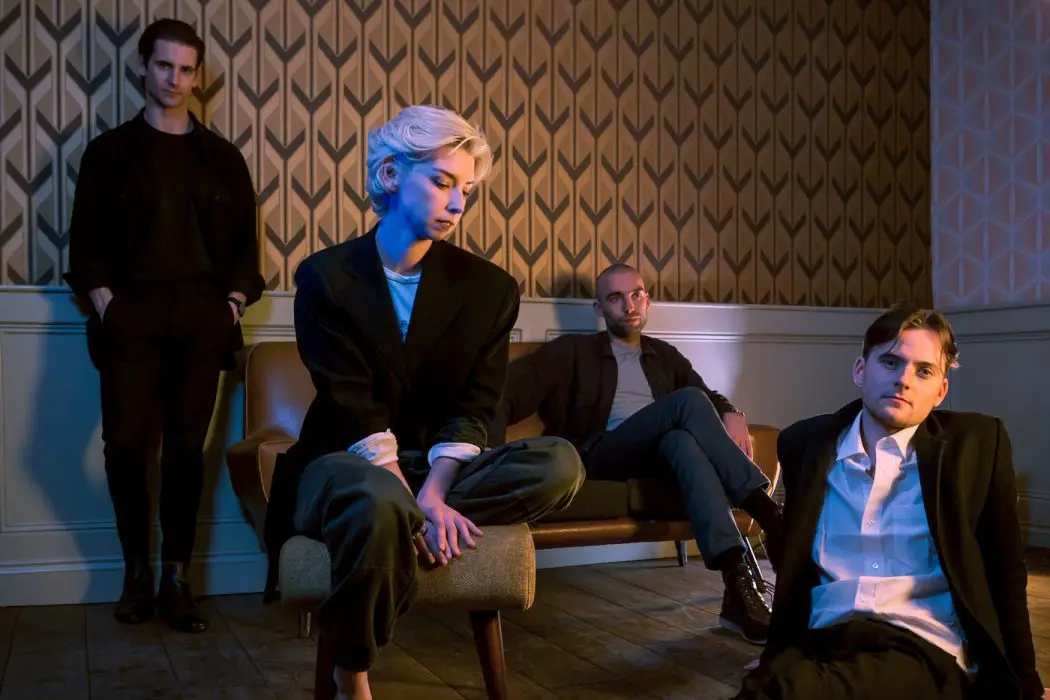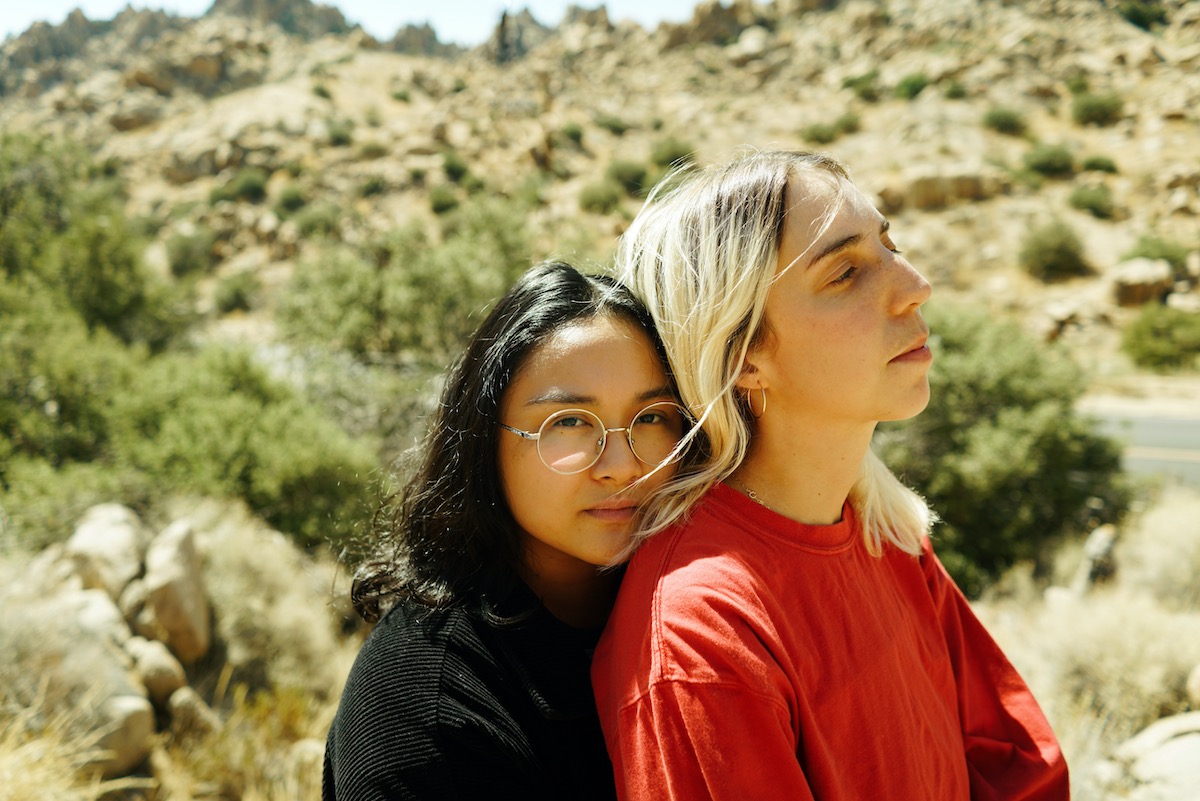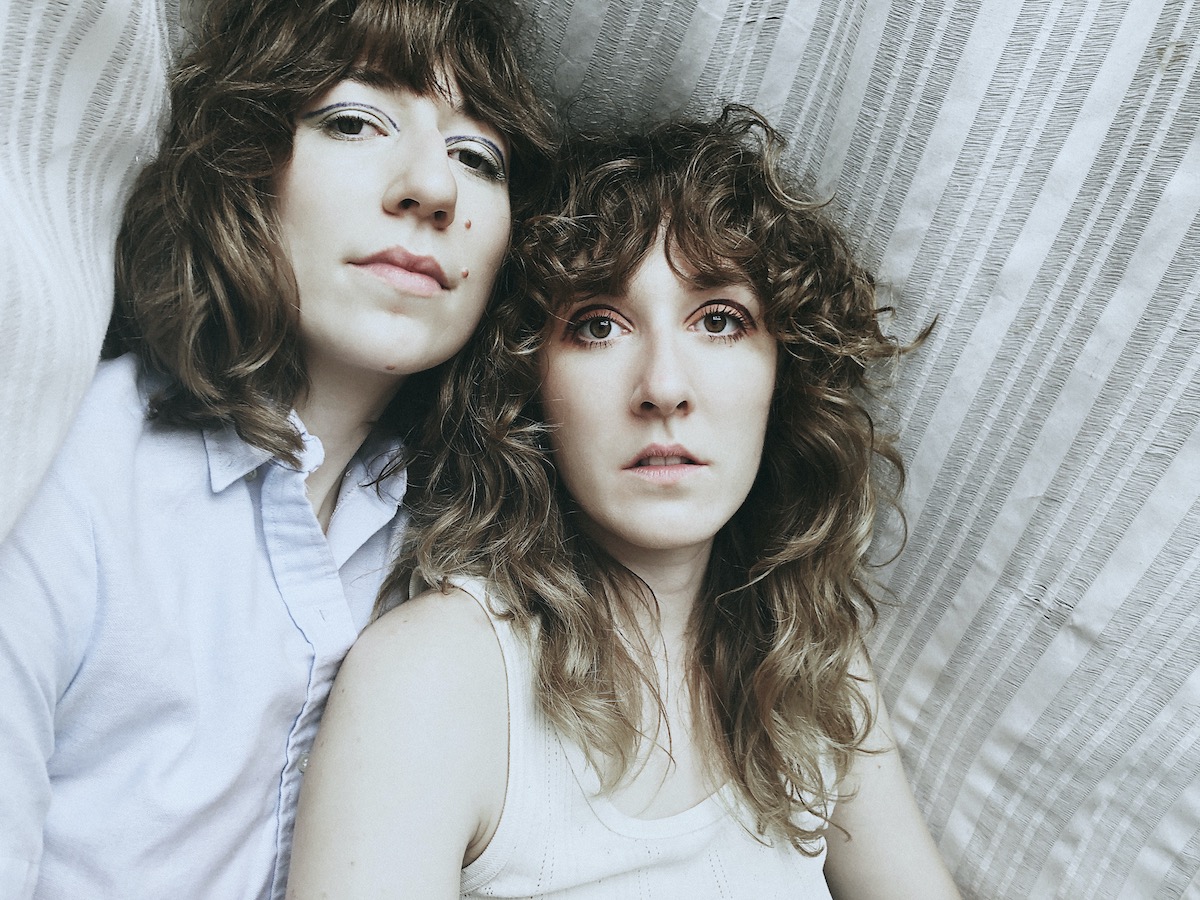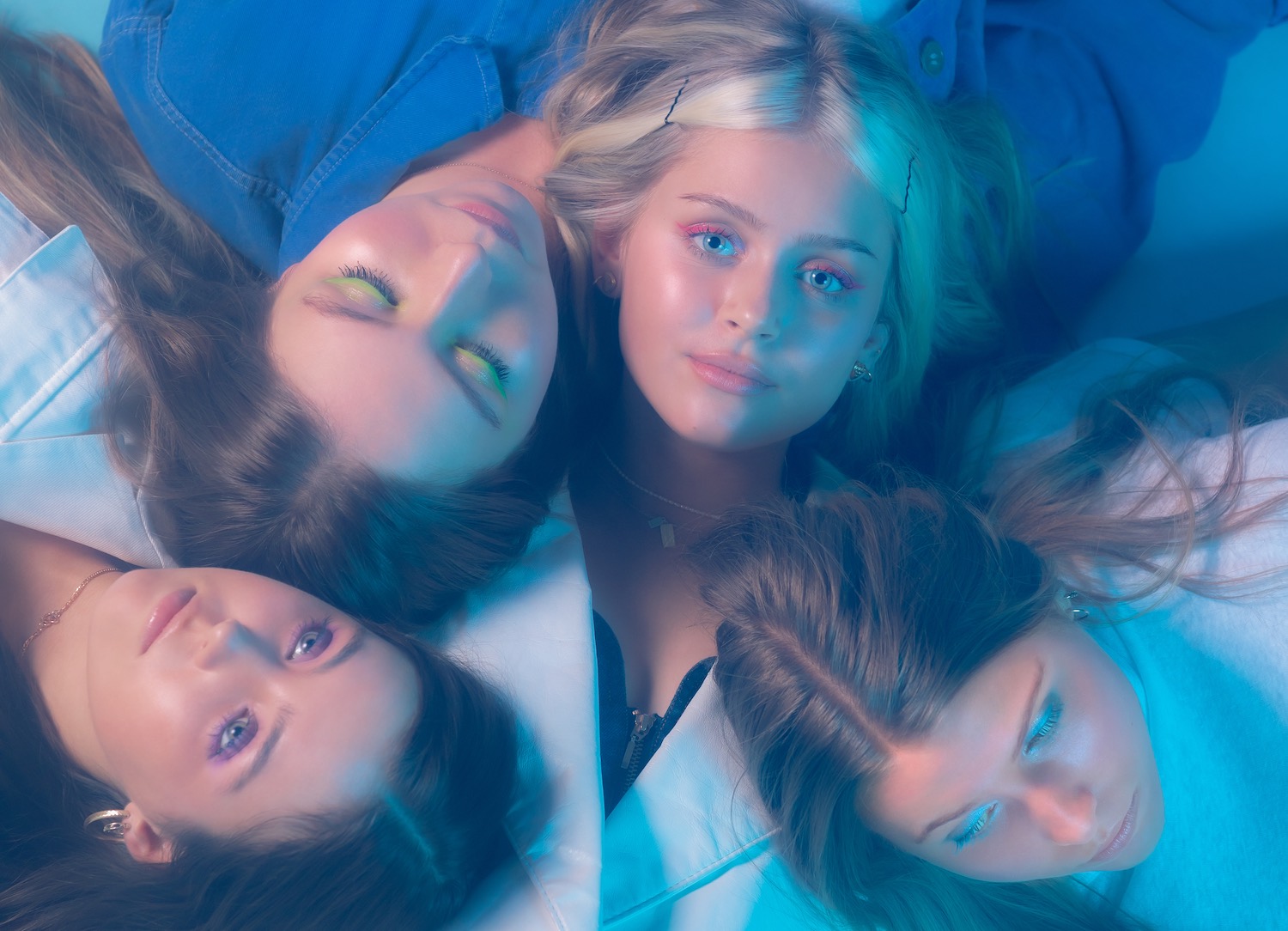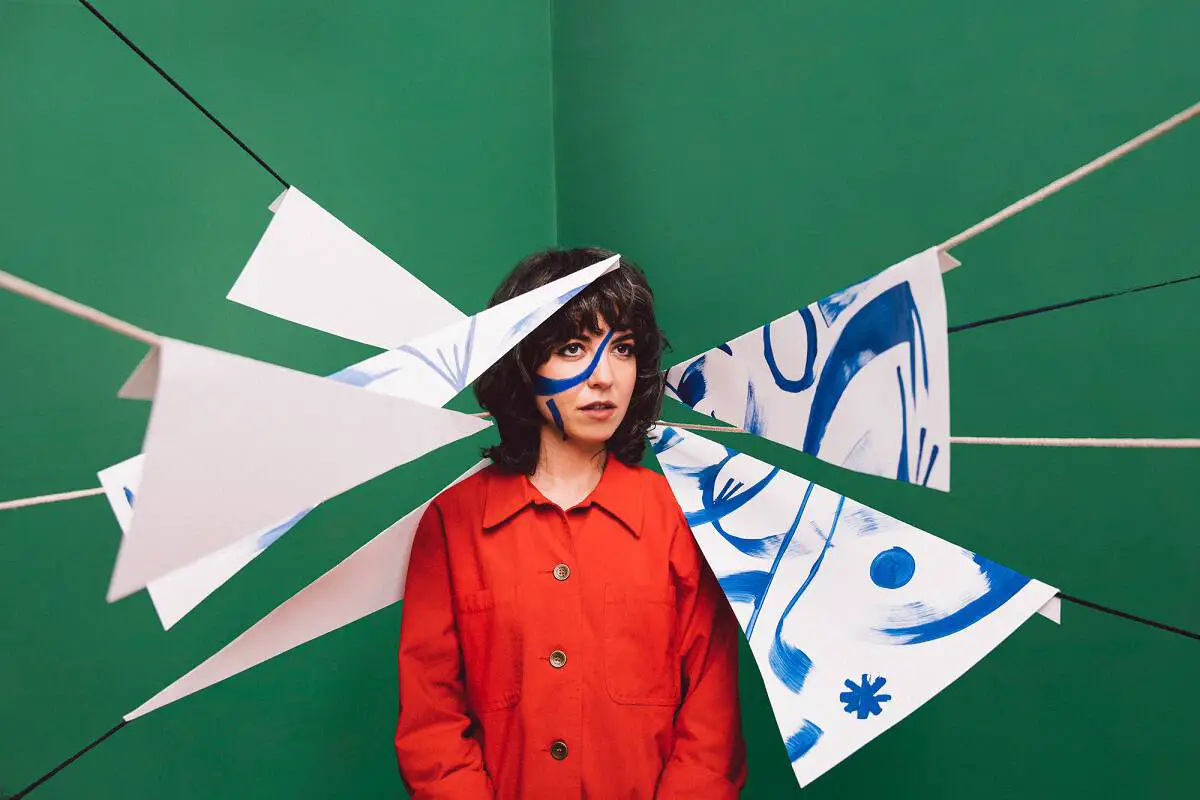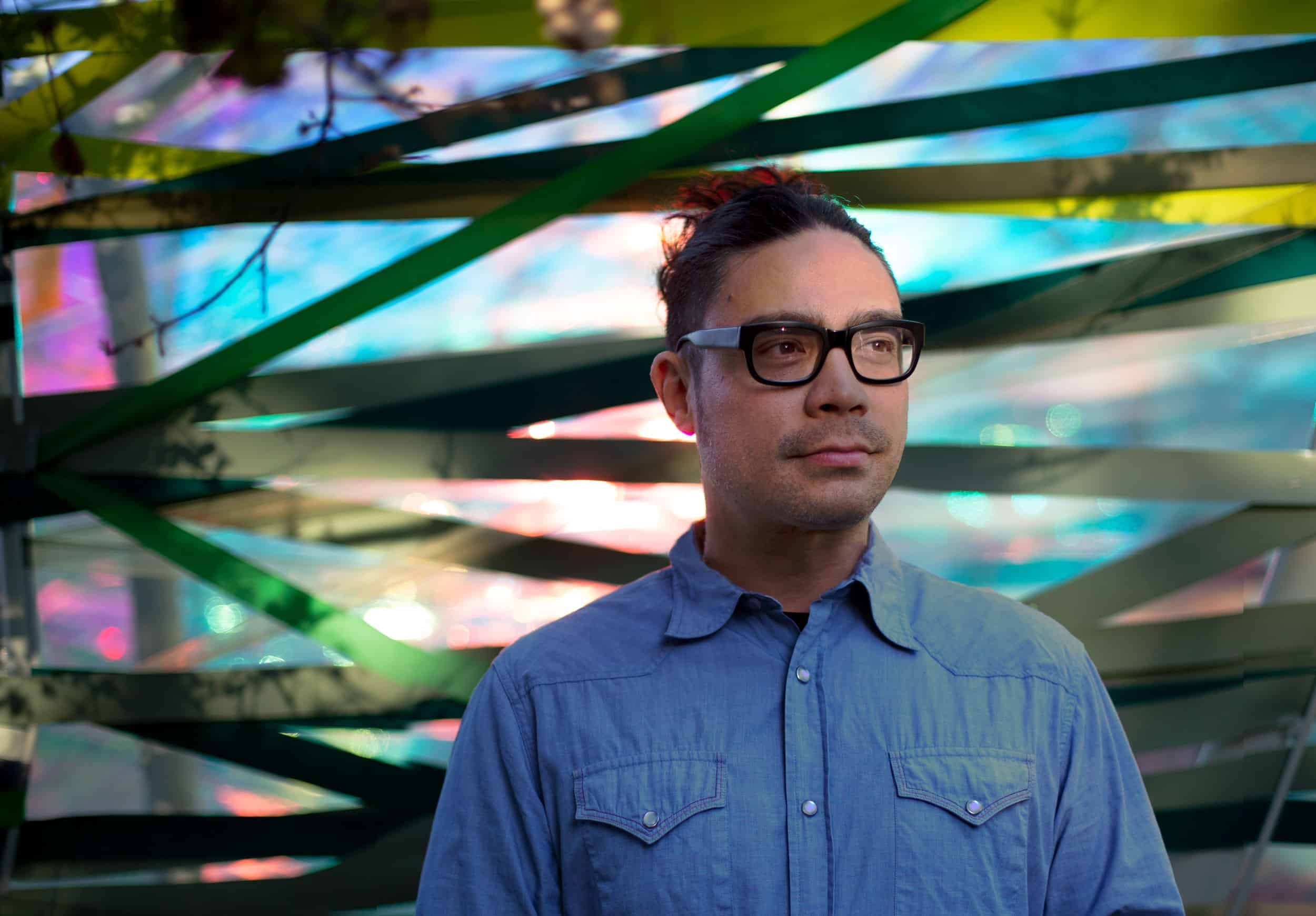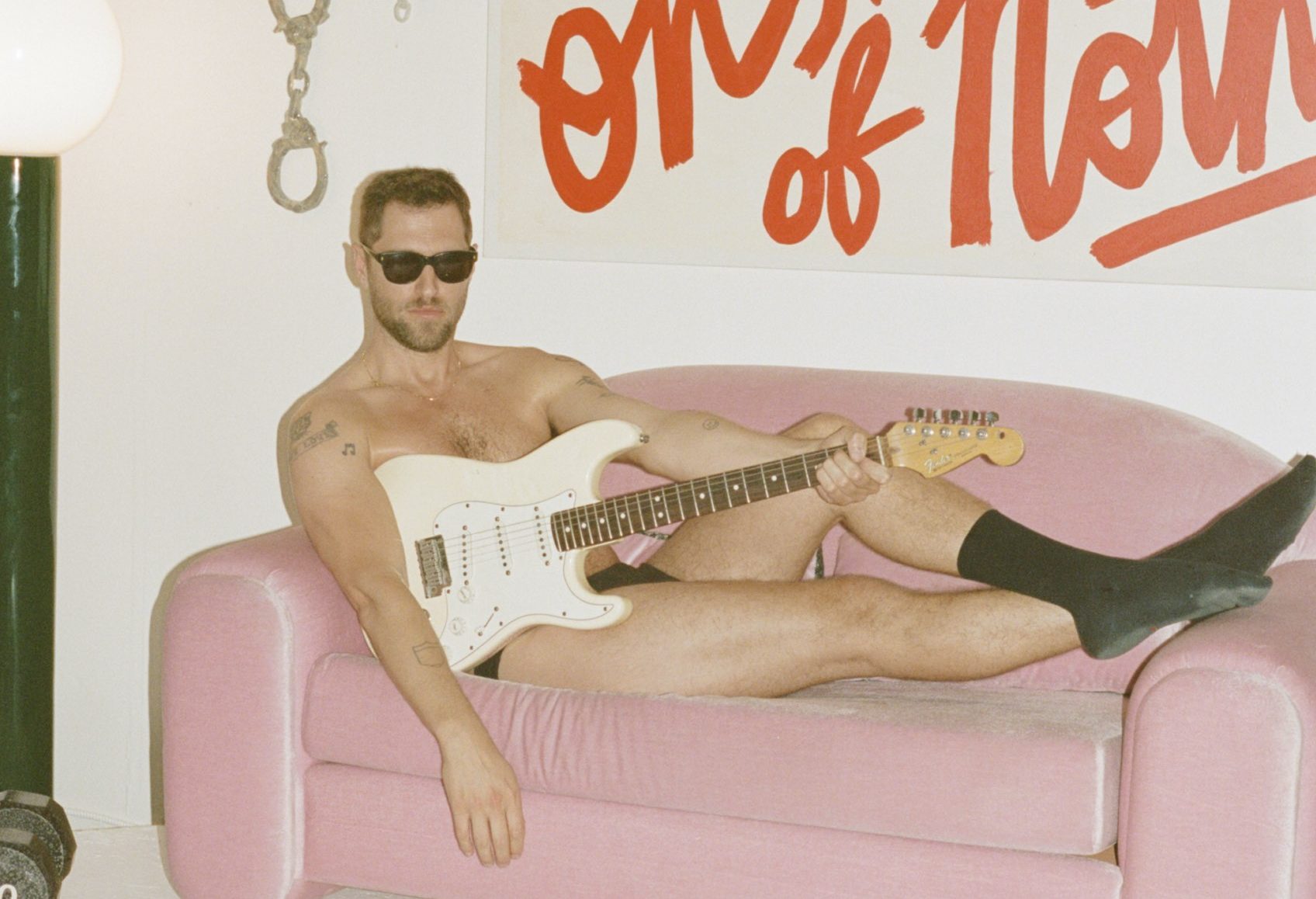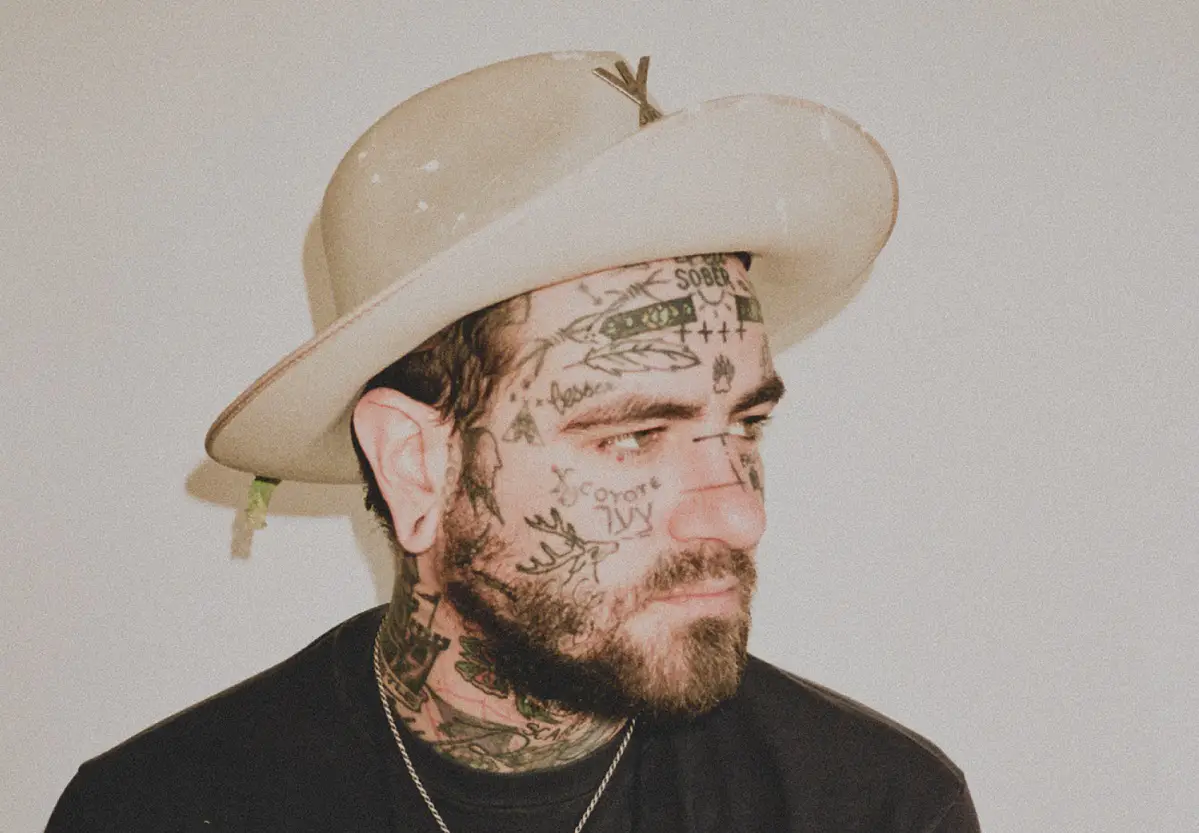Inspired by and made in lockdown, Soda Blonde’s ‘isolation • content’ is a breathtakingly beautiful, timeless soundtrack to separation and disconnect, love and longing, heartache and hope.
Stream: ‘isolation • content’ – Soda Blonde
When future generations ask you what living through the 2020 coronavirus pandemic was like, tell them to listen to Soda Blonde’s isolation • content EP. Inspired by and made in lockdown, isolation • content is a breathtakingly beautiful, timeless soundtrack to separation and disconnect, love and longing, heartache and hope.

Isolation, face unshaved
Drinking, I’m broke
But that to you is nothing new
I’ve been this way before
The mercy, the mercy
of your beautiful face
I’m spinning, I’m spinning
now what did I say again?
Hold me now
the deep night has no right
To give me back my sanity
I’ve been trying to loose
my mind nearly all of the time
it’s a joke
Oh I love you like:
Live lie look laugh life love let down
Oh I love you like:
Live lie look laugh life love let down
Conceptualized, written, recorded, produced, and mixed in isolation by Soda Blonde, isolation • content arrived mid-May as the Irish quartet’s unanticipated, but greatly welcomed sophomore EP. It closely follows the band’s November debut EP release Terrible Hands, previously hailed here as “a deep breath of fresh air” and “a collection of beautiful indie/alt-pop songs full of passion and intent… that makes for a cathartic, emotional, and moving listening experience.”
An Atwood Magazine artist-to-watch, Soda Blonde are among 2020’s most exciting and talented acts: The Irish band, formed following the dissolution of the critically acclaimed Little Green Cars, finds four of the five former members soldiering on: Lead singer and songwriter Faye O’Rourke is making true magic alongside her musical family of Dylan Lynch, Donagh Seaver O’Leary, and Adam O’Regan.

Consisting of four powerfully intimate songs, isolation • content captures this moment in history: Life in lockdown.
It speaks to and for the spirit of the present day – the feverish emotions spawning from our collective yet individual isolation. It’s an EP full of despair, anguish, and uncertainty – yet every song is nonetheless full of warmth, humanity, understanding, and hope. With songs that speak so deeply to what’s going on within, Soda Blonde help us connect during the most disconnected time in recent history.
isolation • content is raw and uninhibited, a product of its time – and what’s perhaps most stunning about its four tracks is that they will resonate with us long after this pandemic has run its due course. While this EP would not exist without the pandemic and lockdown, it’s not the lockdown, but the feelings it has engendered, that fuel Soda Blonde’s music. The band delve into themselves on EP opener “I Hear Birdz,” searching for meaning through rhetorical whys full of frustration and a sense of denied satisfaction.
Is this to hurt my every time
Who are you today
But here you go again
God enslave us amen
I see your demons and they smile
Dancing around you
But here you go again
Cause your pain is your friend
I can’t, I wont, I’m not
Running through all that I’ve done for you
You lost out when you lost me
Why? why? why?

It’s hard to pick a favorite moment in a fifteen-minute set, when in truth every song and each message matters. “I’ve been trying to lose my mind nearly all of the time its a joke,” Faye O’Rourke croons in “Motion,” her gentle, impassioned voice caressing the ears as she poetically expresses love’s limitless complexity: “Oh I love you like: Live lie look laugh life love let down.” When she and her bandmates first wrote the haunting “June” (with its lyric, “I love you darling and I’ll see you soon, and I wanted just to warn you that it might not be ’til June“), it was March and June seemed a long way off; in conversation, we half-jokingly suggest it now be renamed “October” or “2021.” Mourning this surreal loss of intimacy and lack of physical connection, Soda Blonde create their own emotional balance: O’Rourke lives not in blacks and whites, but in the grays, and as such her songs are incredibly complex tapestries of feeling.
“I don’t really want to say something that’s been said already,” O’Rourke asserts. “I know that they’re universal sentiments and they’re universal feelings, but I certainly want to be able to express them in my own way. In a sense, I spend a lot of time thinking, so a lot of that is grey stuff.”
I won’t even cry thinking about the outside
But I bless myself when I think about you
I won’t even try think about the reasons and shit
But I rest my head knowing we’re all in it
Oh I love you darling and I’ll see you soon
And I wanted just to warn you
that it might not be till June you know
We’ll be fine
We’ll be fine
isolation • content closes with the band favorite “A Day At a Time,” the perfect mantra for the moment. Written by Adam O’Regan, the track is an uplifting jolt of perseverance and the resolve human spirit: It’s that injection of energy, a reminder that we’re all just living in the moment, and all we can (and need) to do is take this one day at a time:
Now you’re driving, through my mind
You decide to get out, walk around
And now I’m seeing the beauty in everything
I don’t cry
You slowly wipe tears off of my chin
I don’t cry we can figure it out now
And you said that I don’t care if you’re wasting away
I won’t ask so you won’t have to say
Can you take me out tonight
I’m forgetting what it’s like
I’m not seeing the point anymore
You point out what we’re doing this for
Take me through the Liberties
I’ll tell you about these streets
Upon their EP’s initial unveiling, Soda Blonde shared that “the objective of music at the best of times is to reflect something universal and resonant to those who are listening. We hope more than ever that these songs exist within that sentiment.”
Faye O’Rourke also wrote an explanation of the record’s process – an excerpt is shared below, the rest of which can be found on the band’s website:
This EP bares no constraints; it simply is exactly how we feel with unguarded candour. We made it to be more connected to one another, to be more connected to whoever is listening. Hopefully, we made this EP to be lasting and resolute; to mark this fucking mental time and to explain how it felt to those people who will listen in the future, having not experienced it. We encourage and salute all creatives soldiering on during these times of hardship. Music, like all creativity, strives to reflect something universal and resonant. Now more than ever, we hope that our work lives within this sentiment. We send our gratitude to the frontline workers who’ve proved themselves more vital than religion could ever claim to be and we send all our love and good wishes to each and every one of you. Take it a day at a time. We’ll see you on the other side.
Stepping back for a minute, it’s quite amazing to think that isolation • content even exists: In total isolation, without ever seeing each other, Soda Blonde’s four members “came together” and, thanks to modern technology, made this stirring, incredibly human work of art that reminds us just how special it is to be together – to have connection, love, and understanding – because it turns out, those things we hold so dear can be ripped apart, torn away from us without a moment’s notice. For those reasons, isolation • content serves as a lasting reminder to cherish love, cherish togetherness, and cherish today – the present moment.
Atwood Magazine recently “sat down” with Soda Blonde’s Faye O’Rourke, Adam O’Regan, and Dylan Lynch to swap stories from life in lockdown, discuss the new EP, exhaust our emotions, and more: Join us on a deep dive into isolation • content, and discover your new favorite band!
I feel like those songs, they’ll resonate regardless of being in this situation, because they’re definitely things that we would feel outside of this.
— —
:: stream/purchase isolation • content here ::
Stream: “June” – Soda Blonde
A CONVERSATION WITH SODA BLONDE

Atwood Magazine: First off, how is everybody doing? What does the pandemic look like in Ireland… How are you faring, what are you hearing?
Faye O’Rourke: It’s kind of, I mean probably similar to a lot of places, but it seems to me like people are quite compliant here with rules. There’s also a good sense of solidarity, I think. I mean, do you guys find that?
Adam O’Regan: Mmhmm. We can only speak on behalf of ourselves, but for us, creative people, having the time to devote to making things… this has been a bit of a blessing in certain ways, because we don’t usually have the luxury of time or space to be able to devote to music or art, so that’s been “kind of” wonderful, in a sense.
Right - real life has sort of gone to shit, and you're left with your own thoughts, in a lot of ways.
O’Regan: Exactly, yeah.
I understand. I know music is such a strong emotional vessel for many of us… have you found yourselves diving deeper into albums lately, more so than you otherwise would?
Dylan Lynch: I actually find that I find I’m listening to music in quarantine. I don’t know about you guys, but right now, I’m doing a lot of reading –if I’m not working on music, I’m usually reading a book. I’m not actually listening too much right now, and that’s like the kind of the bare minimum – but not as much as I actually thought I was.
O’Rourke: You’re not on a bus, or traveling; you’re stationary, so I suppose you wouldn’t be as inclined to jam on an album, get from A to B…
Lynch: Kind of, yeah!
O’Regan: Yeah, me too.
Lynch: Yeah, or else if you’re having people over something, that’s usually when you stick on albums and talk about them, but I guess in isolation it’s a bit weirder, you know? It might change – I think it’s just because I’m really enjoying the book I’m reading, that that’s all I’m doing really when I’m not working. Maybe if I have a shit book, I’ll go back to listen to the bangers.
O’Rourke: I love that new Khruangbin song that you showed us, Adam!
O’Regan: Yeah, that’s great. I love the video as well.
Do you find, has it been harder or easier to communicate as a band in this time period? Is it weird to be so separated and so distanced?
O’Rourke: Initially it was kind of a fun challenge; you know, we didn’t know how long this pandemic was gonna last, so it was sort of like almost an experiment in the beginning to try and see if we could communicate an EP together. I think the whole objective of being in a band is that you want it to feel like it’s from one entity. So the distance is obviously challenging; I think I’ve said before, trying to communicate through WhatsApp at the best of times is difficult. You can read the message the wrong way… it’s like a relationship, being in a band! So you learn certain ways of communicating, and you’re very exposed and stuff.
The four of you have known each other for over 10 years. Is your dynamic at this point more one of a family than really a business?
O’Regan: Absolutely, yeah absolutely I’d say that’s 100% what we are, is a family. We fight like a family… We’ve had a lot of kind of, I wouldn’t call them rares, whatever. but the process of making this album has been as loving, and as difficult, as it would be Christmas with the family. We know each other so well that it’s almost, you’re extra sensitive to one another, you know, but it’s all from the right place – it’s all from a place of love.
O’Rourke: I think ultimately, the people that we want to impress most is between the four of us, you know? So that can be the thing. Maybe sometimes we can be a little bit testy, but ultimately yeah, we are family.
It is interesting, because I would say that Soda Blonde, you as a unit, you're probably still “finding your sound” and figuring out what your music is, and what you want to be making! Is that is that a true statement?
O’Regan: We’ve been together for so long, we’ve been making music together for so long, and we’ve grown together; we’ve shared ideas; we’ve learned to play our instruments together… And I kind of think that, at this point in time, it’s a natural thing that we’re making the music that we’re making now. We’re making the music that we want to be making; we’re making the music we want to hear. I don’t know that it’s necessarily been a conscious decision to start making the music that we’re making, but organically, this is how it starts coming out: The four of us don’t need to… after a certain period of time, you develop a shorthand with your band members. We communicate with each other in a much more effective way now, and I think that the process of making this EP, isolation content, has only furthered that effectiveness –that ability to communicate – because we’re apart from each other, but yet we’ve learned how to still communicate.
O’Rourke: I think the other thing is that we would hope to kind of always be evolving with it. I don’t think it’s kind of like we’re going to reach a place that’s the kind of peak of it; I think it’ll just be an ever-evolving kind of process.
O’Regan: Yeah, for sure.

Faye, you were so great to answer some questions of mine last year. I think I might have asked you this question back then, and I want to ask it to everybody now. Has Soda Blonde felt like starting over? Has it felt like the next generation of what the four of you were already going to make?
O’Rourke: I’ll answer it – I think I answered it before, but I suppose it definitely felt like a new thing in the sense that we were kind of starting out on a new chapter, and on our own terms. We always did things creatively on our own terms, but never so much in terms of how we were portrayed or through music videos, and having a real handle on social media and all that kind of thing. I think we were really enthusiastic to be as creative as possible with all those elements that maybe before, in Little Green Cars, were kind of learning the entire way through, what the most effective way to do that was. But as a band, I mean, people always ask, Are my noises like Little Green Cars? and that kind of thing; I mean, it’s so integral to who we are now, so in a sense yes! It does sort of feel like a continuation of our journey as musicians together. But I mean, yeah, I suppose this project is just so totally different. It’s been the most liberating thing to do.
I know you haven't had the chance to make something in a conventional way yet, between your debut EP and this “pandemic” / lockdown EP. Do you create songs differently than you used to do you? Has the creation or the songwriting process changed for you with Soda Blonde?
O’Rourke: I mean, I think it starts kind of in the same way that it would have always started. It’s not a case of everybody trying to express themselves individually in a song; it’s like, what does the song need and what does the song mean? What’s really great about the band is that like, there’s one goal and it’s to serve that purpose of expressing that feeling, and it’s not about what each individual can do, and how talented each individual person is; it’s about what the band is as a unit, and I think that’s kind of always been the case. So that’s certainly carried through the two bands. This process has shown me now that we can kind of work remotely, which is a new thing! So in that sense, yeah, I think there’s a lot of doors that have been opened for us now, in terms of more effective ways and quicker ways of working, I guess!
That is amazing. I wonder if a singer/songwriter would have a totally different approach to what you were saying, in terms of making music as a band where it's not one person expressing themselves, but trying to create something as a whole unit.
O’Rourke: Yeah, I guess that’s the beauty of being in a band. That’s why it’s so great, being in a band, you know? Like, I wouldn’t have it any other way, really. It’s definitely the way to go.
Lynch: Yeah, I feel we’re so lucky to be able to work together. I’d imagine it would be quite hard to be on your own. Obviously it’s hard enough with this going on, but that’s kind of what I said at the start too, Mitch –having this EP to work on during this time was such brilliant outlet for us.
O’Rourke: I’m kind of slipping in and out of sanity anyway, but I would have been totally lost; this has been my outlet.
Lynch: And to have something positive made from quite a negative thing, it’s a really wonderful thing, you know?
I don't often say it, but stuff like that's a blessing. It's a real blessing to have. So I'm not sure if you've been thinking about this, but this month marks the six month anniversary of the Terrible Hands EP. While time kind of stopped back in March, how do these songs resonate with you today? Has your relationship with them grown at all since their release?
Lynch: I remember did a lot of these kind of remote recordings for radio stations and stuff, and we hadn’t played a gig in a while, and we had to record “Terrible Hands” again, and I actually hadn’t listened to it in a good while… I was listening to it, and I was like, “Oh God, it’s so good!” I just love it! It’s a very nice feeling, you know? For me personally, the more time passes, the more I’m super, super proud of us. And then we have all these songs ready to go… I have listened to the album that we made in January for quite a while now, so I’d imagine that’s gonna be the same thing. I’m just really proud of it!
It’s amazing how quickly you as a band are making new music. isolation • content is both a musical time capsule and a familiar, knowing hug. Its beautiful prose and poetry captures the ups and downs of life in lockdown, in real time. You’ve shared the technical specs of how you made this record, but I would love to hear: What was the emotional impact of making this music?
O’Rourke: I think it’s pretty apparent in the lyrics, what I was feeling. There’s certainly not too much that’s cryptic about it. I think the main thing was trying to capture what it felt like, while also trying to provide a little bit of escapism – not just for everybody listening, but for oneself as well. It was funny – I had written the words, the stripped back versions of the songs, in the first week or two of lockdown. So it kind of became something else, because by two months on, you’re kind of like, “Oh my gosh! Do I still feel this?! Do people still want to hear this; is this monotonous to the ear by now?” I guess it was just a diary, almost, of how I feel like so many other people are feeling.
I live in New York City. And you know we're the epicenter in the United States at least of this terrible scary pandemic. It’s a ghost town and a sci fi movie at the same time, you know… But I first listened to this walking along the water in Manhattan, and the contrast of people being outside, but still distanced from one another, it fit very well with the soundtrack that I was hearing. Is this to you the EP that was never meant to be?
O’Rourke: I mean, I suppose I’d kind of thing, with everything you take it as it comes – roll with the punches. I am really grateful for the time: I mean, it’s hard. I can only really speak for myself; for me, my grandmother is in her 90s, and with no sign of a vaccine… will that that ever be okay? Will I ever be not in fear to be in contact with her, to be tactile… so in that sense, I’m kind of like, God, I wish this had never come to be – and obviously it’s been horrendous, the impact it’s had on people’s lives and the economy… but on a personal level, I’m living in an apartment, and it’s been challenging at best: There’s no windows in our living space at all; it’s in a rougher area of town – a lovely area! But it’s given me a lot of time to reflect and to slow down, and I know that’s probably how everybody feels and what everybody’s saying, but I think particularly for myself, I have realized a few truths about myself. And I’m really glad for the time – so in a sense, I think that the EP is cathartic, and I’m glad that it exists.
I think this is one of those times when it's okay to knock something over the head and just keep saying it, and I think that people look to artists and art as expressions of feeling things that we all feel. It's okay for not to be layered in mystery!
O’Rourke: Right. Yeah, well that’s the other thing –who fucking wants to hear about cryptic bullshit right now? It’s all for one, and one for all at the moment. That’s what getting people through.
I think one of the most powerful aspects of this lockdown / quarantine experience is how it’s happening to people all around the globe. Do you think about that often?
Lynch: It feels like it’s wrong, because it’s bad that so many people should face hardship, but it actually makes me feel a little bit better that at least everybody around the world is feeling it – even though it’s not good that so many people should be, you know?
O’Rourke: Comparing things that have happened in terms of different countries complying, or regulations… Like, the UK really screwed up there. I’m definitely grateful to be where I am at the moment. I feel very lucky; New York is crazy – I can’t even imagine! Is there tension in the air, constantly?
The weekends are worse than the weekdays. It’s weird, you walk down the street and 80-90% of people are now wearing masks, which is nice because you feel safe enough to be out and about. But it’s a weird, dystopian experience… you do feel this sense of camaraderie, I suppose. We’re all trying our best, and I’m grateful for the little things.
O’Regan: Do you get a sense, Mitch, in New York, that people have had enough or they’re kind of a bit fed up of that whole situation? It feels like that in Dublin City sometimes – you’re seeing more and more cars out, and certainly in the parks, people are out.
O’Rourke: Well I think it’s probably to do with, because we’re kind of doing fly phase, lifting lockdown – I think if you give people an inch, they might just go a mile.
I’m with you, Faye. I think it's also the summertime, and people want to be outside and they do not want to cancel summer!
O’Rourke: Well, that’s the thing for us here – because this apartment is pretty damn dark, so any opportunity that we can get a bit of sunlight… Unfortunately, I think it can breed a little bit of judgment and spite in people, they’re kind of tense and if someone gets too close, it’s like, you’re too close. You see people talking about walking down the paths, and jogger… I think trying to exercise compassion is a big thing, and just trying to keep that going and not let the fear creep in and affect how people treat each other. I think giving somebody a smile goes a long way during this pandemic.
It’s hard to give somebody in a mask, though.
Lynch: (laughs) You can try and smile with your eyes, maybe the eyebrows!
Haha, good call! It’s through though; you’re right, the world needs compassion more than ever. It's weird to say that you feel more connected to people online than you might outside; that shouldn't be right.
O’Rourke: Yeah.
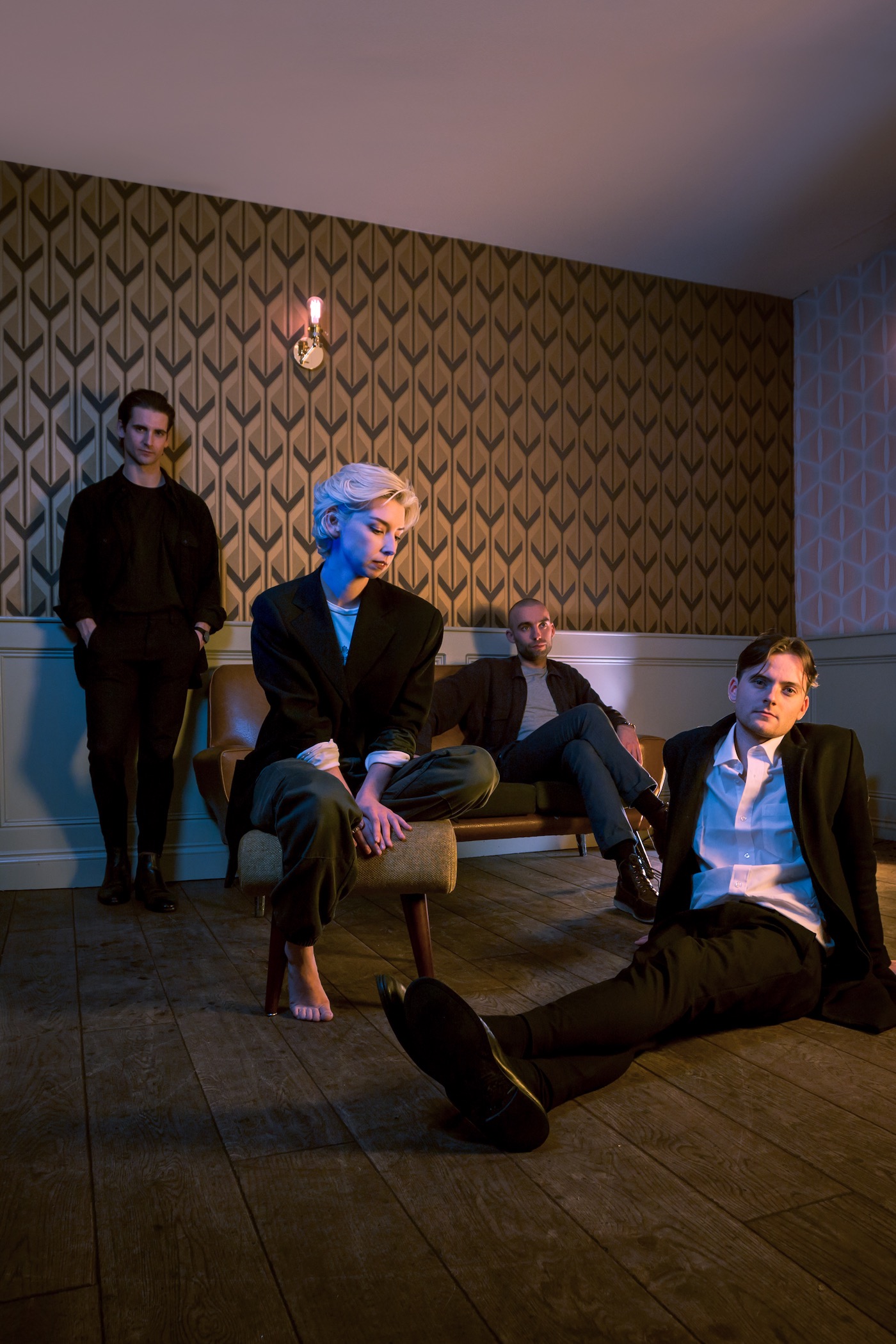
Continuing on, I’m in awe that you created this music as quickly as you did. So, you open with the words, “Get right out of the bed… I didn’t get runs by slacking.” Who is that voice, and why tack that onto the head of “I Hear Birdz”?
O’Rourke: So that guy, he’s a famous cricketer. I didn’t actually look into who he was at all; initially I just wanted that motivational kind of thing of “get out of the bed.” I came across that on YouTube – it was the first thing I plugged in, and he came up. On further inspection, he doesn’t have a great track record as a human being. It was funny, because I actually felt like it was slightly appropriate: There’s a lot of things that are happening behind closed doors that I don’t think people are aware of, and it’s a really hard time for people – and there a lot of voices that are unheard. So I kind of felt like there was a double meaning to that; it kind of made sense to me that it was there.
O’Regan: Out of interest Faye, can I ask you a question? It’s funny, we especially with Faye’s music, I don’t always wants to know the process that goes behind what she makes. For the same reason that any listeners listens to our music, I like to have a little bit of an outside perspective so I can enjoy it in the right way. But Faye, when you were looking for that sound bite, what did you search?
O’Rourke: I think I searched “get up out of the bed” or “get up out of bed.” That’s what I was looking for. Maybe this is too much information, I think you might kill me for saying this Adam, but you know that amazing song on the Kate Bush album where it’s kind of like, “wake up!” and it’s this sort of really chilling thing of all these different voices coming in… that was kind of in my mind at the time – but that’s a secret!
I think that's so cool! It's funny how you have these little moments where you look back and you say, “Oh! That's unintentionally deep.”
O’Rourke : Yeah, you know, I think a lot of art is that way.
O’Regan: Well yeah, that’s it – the best things that happen, I think, when you’re making music, they’re happy accidents. You start out with them with a broad intention, but the best things and the most truthful things are often happenstance; happy accidents.
I love that “I Hear Birdz” just repeats this line, “why?” again and again. Have you found yourselves wondering that question lately?
Lynch: All the time!
O’Rourke: Why is this going on in our lives!?!? Constantly! More than anything, I think, “WHY?” I look in the mirror and I’m like, “Why?”
Lynch: It wasn’t from the COVID that I’m asking why; it’s been since I was up and born, you know? It’s just every day, you know?
O’Rourke: That’s what I’m saying.

I really love “Motion” – if any song speaks to me the most in this moment, it’s this track with its sentiment of finding solace and comfort in others. What’s really striking to me is the post-chorus: “Oh I love you like: Live lie look laugh life love let down.” I think this is just a brilliant expression of love’s complexity. What was the inspiration behind that?
O’Rourke: The whole song is kind of comparing, I think, the monotony and how routine can just be very tedious in life, regardless of the pandemic or not. I think that’s one of my biggest fears, is this kind of routine – and I tend to be a very impulsive kind of person in general. The chorus of that song, the idea is like, I’ve been trying to lose my mind nearly all the time. That’s the kind of sentiment of that song, and the kind of sobriety interfering with that. I think we can all relate to kind of trying to drain away the tedium at the moment, with drinking. So I guess that outro is sort of about slowly slipping into madness, but also it’s methodical in the sense that you love someone in a few different ways: All the stages of love, and inevitably kind of letting them know.
I had a totally different interpretation! I felt like it was a brilliant expression of a relationship’s complexity.
O’Rourke: Well yeah, that’s basically what I’m saying – like, it’s all the different facets and complexity of the moments of a relationship.
When you’re making music, do you intentionally look to the grays in-between the black and the white? Is that a conscious part of your lyrical exploration?
O’Rourke: That’s me, I’m generally gray. I tend to overanalyze things to an inch, you know, to everything. Like everybody, I think I’m constantly searching for more meaning all the time – with music as well, and particularly lyrics: I don’t really want to say something that’s been said already. I know that they’re universal sentiments and they’re universal feelings, but I certainly want to be able to express them in my own way. In a sense, I spend a lot of time thinking, so a lot of that is gray stuff.
I don’t really want to say something that’s been said already. I know that they’re universal sentiments and they’re universal feelings, but I certainly want to be able to express them in my own way.
I like that; I like that a lot. So “June” is a song of finding hope in a hopeless situation. With so many emotions going on all at once, what was the experience like of writing a hopeful song during this time?
O’Rourke: Well that was actually the first song that we wrote, wasn’t it? When I wrote that it was funny because the lyrics were like “I might not see you until June,” which, at the time it was March. I just can’t believe that came to fruition, because at the time it was this… it seems hopeful now, but at the time it was actually quite bleak! It could have gone on for one or two weeks, but I didn’t know it was gonna go on for two months. I guess it was sort of a hopeful message to people that we couldn’t see and couldn’t be with; I think it’s definitely a universal sentiment.
Seems like it's gonna have to be renamed “October.”
Lynch: Yeah, “2021.”
And then we go on to “Take It a Day At a Time,” Adam wrote. It’s a sad, but true mantra of this moment in history. Does it help you at all? Have you been able to slow down like that?
O’Regan: To me that, of all the songs we’ve made, that is the lyric that holds true to me more than anything. Whenever I hear that one, I still find it to be uplifting and reassuring. That is all anybody can be doing right now, is just taking it one day at a time. I think that anyone living in a claustrophobic situation… people who are living with partners, or living with family members, things like that, find themselves saying something like, “we’re just gonna take it one day at a time.” Just got to keep positive and appreciate what we have.

I think what I really like is that theoretically four songs can only say so much – but you say a lot! You really do bring us through the rigmarole of emotions and the turmoil that all of us are feeling right now.
O’Rourke: Yeah. It was funny, as I was quite eager to say that Adam put “A Day At a Time” together, and it was a really polished, finished piece of work. It kind of felt like that was going to be the conclusion to the EP, and that was going to be the kind of resounding message or something? Well it felt that way for me when I was trying to put lyrics to it. I was really, really scared – like, I was very apprehensive about getting it right, because I loved that piece of music so much; I could have just listened to that on its own, and I did in fact, before we toyed with actually expanding on it – but I just listened to it over and over; it was such a well-formed piece of work. So it was great to actually be able to draw a conclusion, I think, from the EP with that, and I think that I speak for all of us when I say that it was probably the one track that we all felt resonated with us the most.
Lynch: Yeah, actually I was talking to Faye about the song anyway, and I said the exact same thing that Adam said – it’s just the one mantra that you just do repeat. It’s so easy to get boiled over with anxiety; there’s so much things that are out of our control, and just to have something like that, I think… I think having those powerful messages, it’s great.
Was this one of those projects that told you when it was done? Did you have to actively stop at four, or did you feel very comfortable saying that this is a completed set, let's give it to the world?
O’Regan: It’s funny because usually, the process is that you just write and write and write, and then you’ll usually be picking from a bunch. But we wrote four songs, and that was kind of it. It also was started out, as we said before, as an experiment to see whether we could do it, but each one that came along really served a kind of a purpose; I think we’re very lucky with that.
Do you envision yourselves bringing these songs into your eventual live set, or do you think they are for the EP and for this time only?
Lynch: I think we should play them live, definitely.
O’Regan: I’m just dreaming of a time if that will ever happen; it seems like such a far-fetched, mad… I just, I can’t imagine that happening right now: Playing a show with a bunch of sweaty people crammed into a room just seems like a dream.
O’Rourke: I feel like those songs, they’ll resonate regardless of being in this situation, because they’re definitely things that we would feel outside of this.
I feel like those songs, they’ll resonate regardless of being in this situation, because they’re definitely things that we would feel outside of this.

I’m sure one of the saddest parts of this experience is that you haven’t had the opportunity to perform these songs together yet. While I know there’s magic yet to come once you do get together in person again, there’s also the magic of hearing instruments coalesce just right for the first time. Did anything stand out to you the first time you heard it? What are your favorite moments on this EP?
O’Rourke: Yeah, I’m definitely proud of it as a whole. It seems like one kind of entity. I think we just achieved something that immediately exceeded the brief, and I’m just really proud that we managed to do it. I feel closer to the guys as well, almost, for having achieved this! In terms of particular moments, I guess to reiterate, I suppose, “A Day At a Time” was a big one. I don’t know, what do you guys think?
Lynch: To be honest, it’s weird that the idea started with Adam, in the WhatsApp group, being like, “What if we wrote an EP in total isolation, without ever seeing each other?” and that whole thing started by sending one text, and then each text got bigger and bigger; the files got bigger, and it was like a constant back and forth – and after the whole thing, we have these songs made! Like Faye, I would agree – when you step back and look at it as just a finished work, I think that’s this satisfying thing, and I love all the songs in different ways
O’Regan: I think through this whole isolation, everyone has become obsessed with (and we’re all reliant on) the connectivity of the Internet. I think that is the most beautiful utilization of that – that we have a body of work that we’re proud of, that just purely would not have been impossible without the Internet, without WhatsApp, without Facebook, without all these means. I’m really proud of that; it’s been a really interesting, challenging artistic process, and the outcome has been really fruitful. Like what Faye was saying, we’ve definitely learned things now from this process, that we can carry on into hopefully when things go back to normal; but it’s a brilliant skill, and it’s good for communication!
O’Rourke: You can go to Berlin now, Dyl!
Lynch: Haha, yeah, yeah, exactly! That is true, you know? We can do things like that, we could; we could all be in different countries and still make this work.
I love that. I'm more and more reading comments of people saying that Soda Blonde are the best band coming out of Ireland right now. There's that process of being a new band, obviously, and treading over old ground that you already did once before, in your lifetimes. Do you have any tangible sense of the impact that you've been making at home, and of the listeners that you're touching?
O’Rourke: Definitely! I think the difference for me personally anyway, from this process, and being at this stage – because I mean, we have done this and kind of gone through this process with the previous band – is that I can appreciate all the small moments more and enjoy them more! I think the first run was anxiety and fear and maybe feeling out of place, or not knowing what was to come. Just, I think as well, being a teenager, and all the things, by nature, that come along and go hand in hand with that – like being insecure and stuff. Now that our priorities are just to make music together and continue the journey, we’ve done it, you know?! We know how volatile the music business is, and how volatile hype is, and all of those things that come along with trying to make it as a band! I think with this process certainly, of course you’d want all the successes that we had before and hopefully more than that, but at the same time, the smaller things mean a lot. I’ve definitely been able to sense people’s reaction, because I’m open to it and I appreciate it. I think we’re a great band, and yeah, I can get a sense that people are enjoying the music, and that’s the most important thing.
That's wonderful. Either of you want to weigh in on that?
Lynch: I think the fact that when we were younger, we didn’t quite have the skill set that we have now is important. Adam only started to direct music videos maybe at the second album with Little Green Cars, and similarly we were learning how to produce the music steadily. We always did this process, but I feel like now, I love the fact that everything is being done by the four of us now –the music videos, the photos, the production of the music –
O’Rourke: – You feel totally like your live is here. I think maybe before it was easier to detach and think about what was going on with your individual personal lives in some respects, whereas we’re so attached to every kind of facet of it that it’s hard to not get a sense of how it’s being received.
It’s complete ownership.
O’Rourke: Yeah, definitely.
I feel like I just have to end this here saying “thank you.” It's not many a band you meet, that has complete ownership over their art, and this sense of excitement! I always like to close on this question: Do you have any recommendations for music that you're listening to, that you would want to share with our readers?
O’Rourke: Good friends of ours, a band called Bleeding Heart Pigeons, have absolutely incredible music that they’re releasing at the moment. Mícheál Keating is an amazing producer, and they’re very heavily involved in every artistic aspect of their work; I think they’re just one of the best bands in the country, so I would recommend them. Do you guys have anything?
Lynch: Yeah – sticking to Irish music, there’s one Irish artist who I think is virtually unknown, even in Ireland, but I think he made one of the most brilliant collections of songs – this guy called Henry Earnest. The album’s called When You Get Caught Between the Moon & Dublin City. It’s just the most bizarre, wacky, beautiful collection of songs – really experimental, and I just think it’s so good, and nobody really knows about it. So that could be interesting!
O’Regan: I guess I’ll throw in the band Porches. They’re a band from New York that are relatively unknown – I mean, they’re not unknown, but relatively unknown, considering I think they’re absolutely brilliant. They’ve had about three albums out, and their latest album just came out a month or two ago – it’s called Ricky Music, and it’s a huge influence on myself and Dylan!
Thank you all so much! This has been so much fun, and congratulations on this EP; I think it's really special, and I'm excited to see it out on the world. Stay well, and speak again soon!
Stream: ‘isolation • content’ – Soda Blonde
— — — —

Connect to Soda Blonde on
Facebook, Twitter, Instagram
Discover new music on Atwood Magazine
? © Ste Murray
:: Soda Blonde ::

